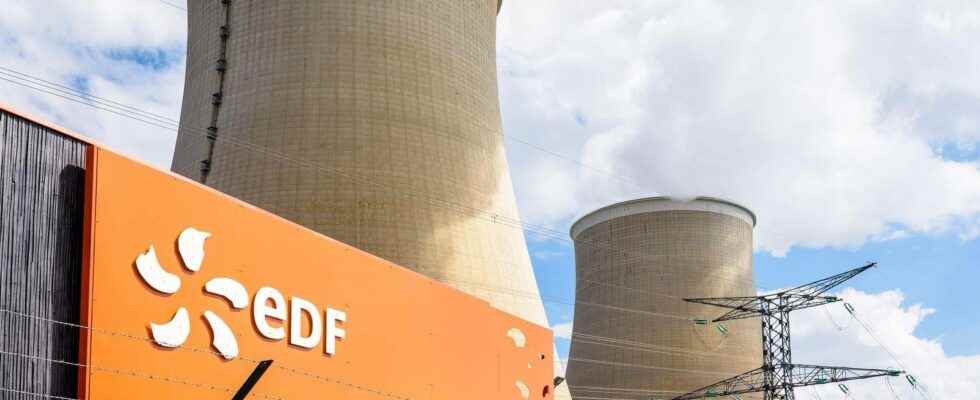(AOF) – EDF has successfully launched a hybrid bond issue denominated in euros for an amount of 1 billion euros, with a coupon of 7.5% and a 6-year redemption option at the option of the company. It may redeem the new securities in cash at any time during the 90-day period preceding the first interest reset date, which is six years from now, and on each coupon payment date thereafter.
Following the successful issuance of these new securities, EDF announces its intention to exercise its option to redeem in full on January 29, 2023 the Dollar Hybrid Bonds, which are admitted to trading on the regulated market of the Luxembourg Stock Exchange. If the company proceeds with the redemption, the holders of the Dollar Hybrid Bonds will be formally notified in accordance with the terms and conditions of the Dollar Hybrid Bonds.
The new securities will be admitted to trading on the Euronext Paris market. The rating agencies should assign the new securities a rating of B+/ Ba1/ BBB- (S&P/ Moody’s/ Fitch) with 50% of the amount of this issue retained as equity.
AOF – LEARN MORE
Key points
– World leader in low-carbon energy created in 1946 with 38.5 million customers worldwide and 117.3 GW of installed capacity: 60% in nuclear, 18% in hydraulics, 8% in energies renewables, 9% in gas, 3% in fuel oil and 2% in coal;
– Turnover of €84.5 billion and installed capacity of 117.3 GW: 60% in nuclear, 18% in hydraulics, 8% in renewable energies, 9% in gas, 3% in fuel oil and 2% in coal;
– “Cap 30” business model with 3 strategic axes: supporting customers towards carbon neutrality via 10 billion in revenues in services, the rank of 1st world producer of net CO2 electricity and the role of actor of the energy transition;
– Capital 83.69% owned by the State, Jean-Bernard Lévy, CEO of the 18-member board of directors, to be replaced by Luc Rémond;
– Balance sheet cleaned up in April with a net debt (rated A due to the State guarantee) of €42.3 billion, which will be reinforced between 2022 and 2024 by the disposal plan of €3 billion.
Challenges
– 4 strategic plans: electric mobility – 30% market share in the supply of electricity to electric vehicles by 2023 in France, United Kingdom, Italy and Belgium-, storage -10 GW installed worldwide in 2035-, solar power – 30% of the market in France in 2035- and the Excell plan for the French nuclear industry;
– Innovation strategy dedicated to digital transformation, production processes, future electrical systems and the decarbonization of customer uses:
– R&D budget of €661 million with 756 patented innovations,
– EDF Pulse Growth fund and incubator and research partnerships (Sinclair laboratory, 5g living Lab, quantum computing, etc.);
– Environmental strategy included in the purpose of the group:
– carbon neutrality in 2050 and 50% reduction, vs 2017 of emissions in 2030,
– 99% of operating budgets dedicated to decarbonization and energy transition,
– €8.755 billion in “green and sustainable” financing and 72% of credit lines indexed on ESG indicators;
– Launch of the construction program for 6 EPR2s and studies for 8 others;
– Integrated operator, from the design and manufacture of nuclear reactors, through Framatome, 75% owned, alongside Mitsubishi (19.5%) to distribution.
Challenges
– Activity governed by the NOME law (free competition between all market players and resale of a quarter of EDF’s nuclear electricity production to its competitors) and electricity prices administered in France, hence a maintenance cost network little included in the tariffs;
– Impact of the Russia-Ukraine conflict: need to relaunch nuclear electricity production requiring investment in the French fleet and capping of tariffs for individuals;
– Neutralization of the competitive advantage of nuclear power by the obligation to sell electricity to industrialists at the market price;
– Towards a renationalisation of the group but price of the future delisting by the State, ie €12 per share, contested by minority shareholders;
– After a net loss of €5.3 billion in the 1st half, 2022 objective of nuclear production at historic lows, above 280 TWh.
Threat to the European energy system
The leading importer of German gas, Uniper posts 54% of the volumes it buys from Russia. Following the war in Ukraine, the group had to acquire the volumes it lacked on the spot market, the prices of which had exploded. In difficulty, he requested aid from the German state, which raises concerns for all European energy companies. Nevertheless the German RWE and the French Engie reacted by arguing that their situation was very different. RWE stressed that it was less dependent on Russian gas. As for Engie, it benefits from the diversification of its sources of supply, with an increase in the volumes of LNG delivered to France and contracts with Norway and Algeria. The group has also adapted its hedging strategy to strengthen its resilience.
